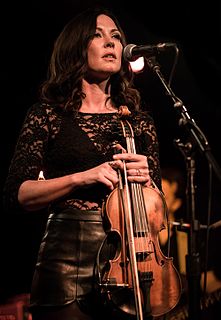A Quote by Ana Castillo
When I devoted myself to poetry - and poetry is a very serious medium - I don't think the people that knew me as an individual with that tongue-in-cheek kind of humor...well, it didn't always lend itself to my poetry. When you're writing poetry, it's like working with gold, you can't waste anything. You have to be very economical with each word you're going to select. But when you're writing fiction, you can just go on and on; you can be more playful. My editor's main task is to cut back, not ask for more.
Quote Topics
Always
Anything
Ask
Back
Cheek
Cut
Devoted
Each
Editor
Fiction
Go
Going
Gold
Humor
Individual
Itself
Just
Kind
Knew
Lend
Like
Main
Me
Medium
More
Myself
New Me
People
Playful
Poetry
Poetry Is
Select
Serious
Task
Think
Tongue
Tongue-In-Cheek
Very
Waste
Well
Word
Working
Writing
Writing Fiction
Writing Poetry
Related Quotes
What I wrote all the time when I was a kid - I don't want to call it 'poetry,' because it wasn't poetry. I was not that kind of a writer. I was a rhymer. I was a fan of Dorothy Parker's, so maybe I wrote poetry to that extent, but my main focus was the humor of it, and word construction, and the slant. Your words, it's a very powerful experience.
We do have to learn poetry at school. Poetry is interesting to me, particularly Chinese poetry. It's like an ancient form of song. There's five sentences, seven sentences - they're very different from English poetry. Chinese poetry is much more rigorous. You can only use this many words, and they will form some kind of rhythm so people can actually sing it. To me, poetry is quite abstract but also quite beautiful.
I'm not against sentimentality. I think you need it. I mean, I don't think you get a true picture of people without it in writing... It's a kind of poetry, it's an emotional poetry, and, to bring it back to the literary scene, I don't think anything is true that doesn't have it, that doesn't have poetry in it.
This is going to sound nuts but it took me forever to figure out why I'd stopped writing poetry - I mean, I went about a decade where I wrote very little poetry and I thought it was because I was doing a weekly blog. And then when we moved, I reconfigured my writing desk. The previous one had had very little space to write by hand. And suddenly, the poetry was gushing!
Poetry has an indirect way of hinting at things. Poetry is feminine. Prose is masculine. Prose, the very structure of it, is logical; poetry is basically illogical. Prose has to be clear-cut; poetry has to be vague - that's its beauty, its quality. Prose simply says what it says; poetry says many things. Prose is needed in the day-to-day world, in the marketplace. But whenever something of the heart has to be said, prose is always found inadequate - one has to fall back to poetry.
I find it strange that - at least in my take on it - the people who are the most alarmed about the dire times we live in are the ones who seem to be humorless, in their taste for poetry anyway. Humor is just an ingredient. It's always been in poetry. It kind of dropped out of poetry I think during the 19th and up to the mid-twentieth century. But it's found its way back. And it's simply an ingredient.
I don't think I ever had a morning where I woke up and said I'm going to be a professional poet. I know I've always loved poetry, I've always loved writing poetry and I've always loved sharing poetry. I've also always known that I wanted that to somehow be a very large part of my life and I'm very fortunate that it's such a large part of my life.






































